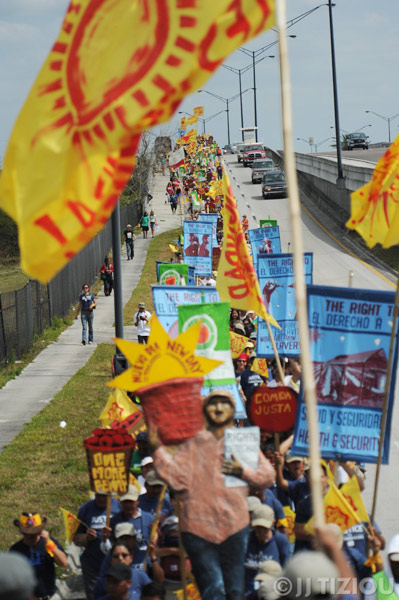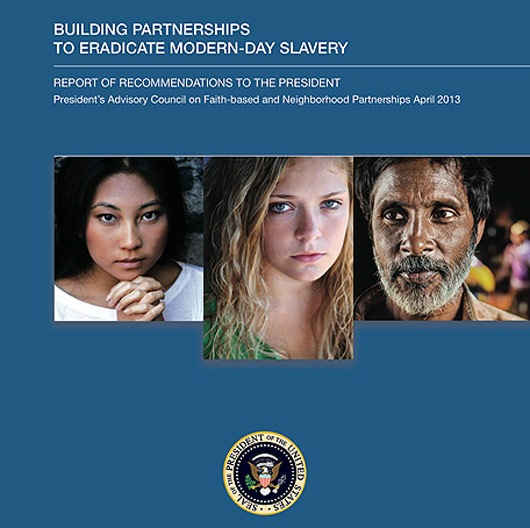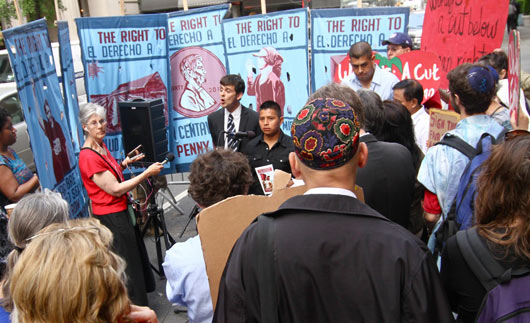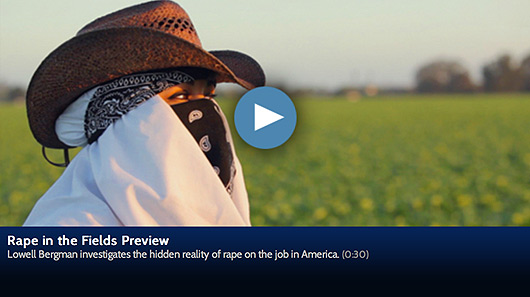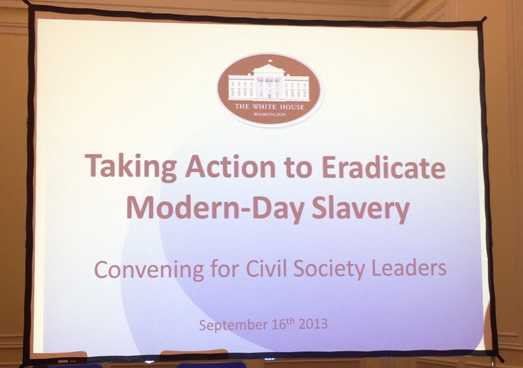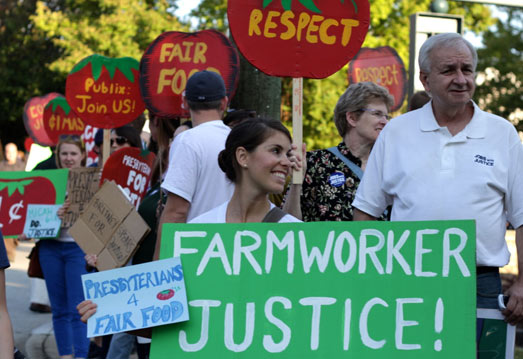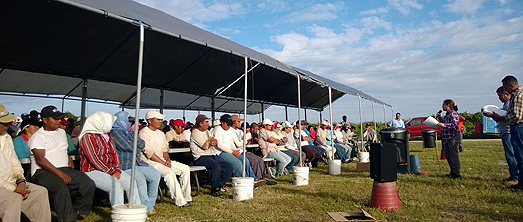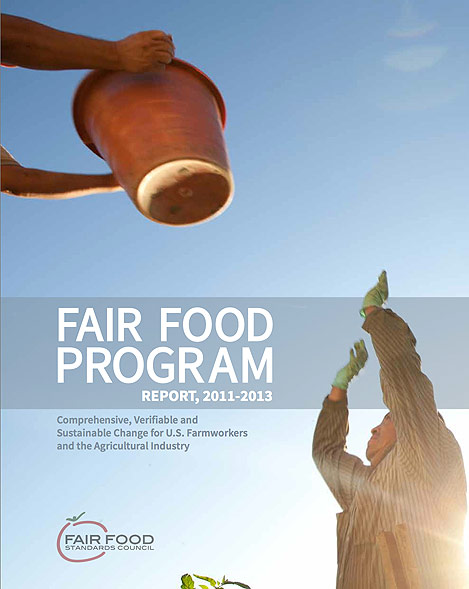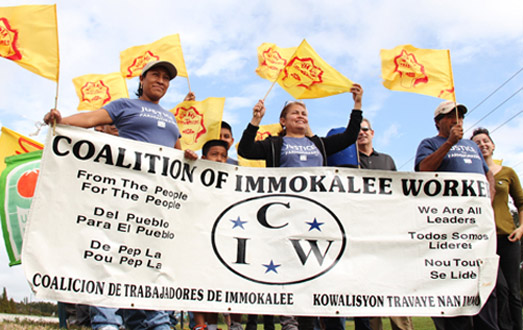[hupso_hide][hupso title=”#HappyNewYear! Take a look back at #FairFoodNation during busy & wildly successful #2013 ” url=”https://ciw-online.org/?p=17719″]
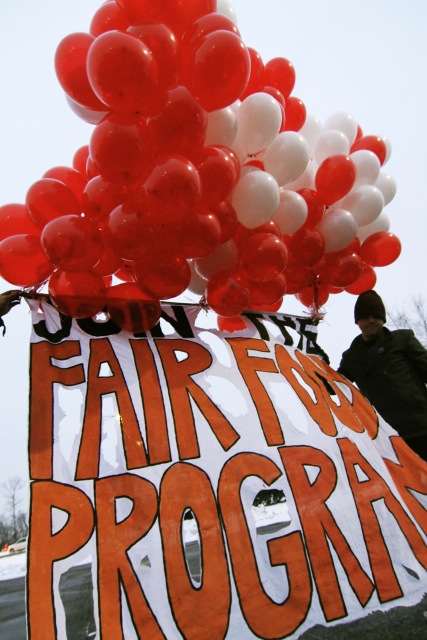 Not so fast! We take a look back at 2013 — the year the Fair Food Program proved its mettle and won acclaim from the White House to the United Nations — before heading into what is sure to be a huge 2014…
Not so fast! We take a look back at 2013 — the year the Fair Food Program proved its mettle and won acclaim from the White House to the United Nations — before heading into what is sure to be a huge 2014…
The New Year is upon us. The holidays are over, students are back at school, workers back at work, and the Fair Food Program — which never really takes a holiday — is ready for a busy new year of education, audits, complaint investigations and… expansion. If what’s past is indeed prologue, then more growers and buyers can be expected to join the Program in the year ahead, and the Program’s work outside of Florida can be expected to continue to grow.
2014 will be a year of growth, no doubt. But before we look ahead, we wanted to take one last look back at what was a busy, and wildly successful, 2013.
January
The year started off with a bang heard all the way to Dublin, Ohio (home to the corporate headquarters of fast-food leader Wendy’s), as the Fair Food Nation let the “old fashioned” hamburger giant know the time had come to catch up with the rest of the fast-food industry and join the Fair Food Program. The week of action foreshadowed a year of protests, petitions, and pressure from all sides that only promises to grow in the year ahead:
“Welcome to the Campaign, Wendy’s!”…
Over the course of the three-day weekend, Fair Food activists in over 40 cities (including Washington, DC, with the Wendy’s look alike pictured above) formed delegations to visit local Wendy’s restaurants and talk to the managers about the Fair Food Program. The weekend’s action was just a first glimpse of the Campaign for Fair Food for the Ohio-based hamburger giant, the last of the country’s top five fast-food chains to refuse to partner with the CIW to improve farm labor conditions in its supply chain… read more
March
The March for Rights, Respect, and Fair Food headlined the month of March, with thousands of marchers taking the Fair Food message to the streets in a march of 200 miles from Ft. Myers to Lakeland, calling on Publix “to join the New Day and sign a Fair Food agreement“:
March for Rights, Respect & Fair Food
The fifteen-day, 200-mile March for Rights, Respect, and Fair Food came to a loud, colorful, and jubilant end on Sunday, March 17th outside Publix corporate headquarters in Lakeland.
The final day began with a 6-mile march through the city of Lakeland and ended with a 2-hour long rally that had audience members swinging between tears one moment and riotous laughter the next, as marchers reflected on the significance of their monumental journey, musicians performed a diverse selection of songs on human rights from 50-year old civil rights standards to fresh new hip hop tracks, and the CIW theater troupe put on its most elaborate production to date… read more
April
In April, the Fair Food Program received its first of several high profile recognitions during 2013, this one from the White House in a report on the fight against modern-day slavery:
White House recognizes CIW’s Fair Food Program!
At the first-ever White House Forum to Combat Human Trafficking last week — an event that involved everyone from Secretary of Homeland Security Janet Napolitano to Attorney General Eric Holder and Secretary of State John Kerry — the CIW and the Fair Food Program were front and center.
The Fair Food Program was singled out in a major new report of recommendations to the President as “one of the most successful and innovative programs” in the world today in the fight to uncover — and prevent — modern-day slavery, a fight President Obama himself called “one of the great human rights causes of our time”… read more
May
Dutch grocery giant Ahold (parent company to several major US grocery chains, including Giant and Stop & Shop) didn’t avoid the Fair Food spotlight this year, hosting — albeit reluctantly — a visit from the CIW at its annual shareholder meeting in Amsterdam. The event, and the company’s public relations doublespeak response to the CIW’s demand for real social accountability in its tomato supply chain, sparked a three-part reflection on the difference between corporate-controlled social responsibility efforts and the Fair Food Program, the first worker-designed, worker-centered social responsibility program in the US agricultural industry:
The three founding myths of corporate-led social responsibility…
On Monday we brought you news from Ahold’s annual shareholder meeting, where the Dutch supermarket giant once again roundly — and, truth be told, a bit rudely — rejected a call by the CIW’s Lucas Benitez to join the Fair Food Program.
Just days before the shareholders’ meeting, Ahold issued a statement in response to the Campaign for Fair Food that, perhaps predictably but certainly not intentionally, did a terrific job of laying out what we are calling the Three Founding Myths of Corporate-Led Social Responsibility. Here below are those three myths, in the order in which they appeared in Ahold’s statement:
- Standards, without resources or mechanisms sufficient to enforce them, are adequate to respect and protect human rights in the supply chain;
- The market price is, by definition, a fair price;
- Corporations can be trusted to unilaterally investigate, and to determine any appropriate corrective action, when their suppliers violate their workers’ human rights.
In our last post, we promised to take a closer look at each of the myths — at how Ahold staked a claim to each in its statement, and why each is so woefully misguided. So today we begin with our first post examining the Ahold statement, on the question: Can standards, without enforcement, protect human rights?… read more
Also in May, and by no means unrelated to the story of Ahold’s attempt to avoid real social responsibility, the second of many high-profile acknowledgments of the Fair Food Program’s unique approach to monitoring and enforcing human rights in the Florida tomato fields — and the Program’s unique success at materially advancing those rights — came to light as the United Nations Working Group on Business and Human Rights published its report on its fact-finding mission to the US:
U.N. Working Group on Business and Human Rights “impressed” with Fair Food Program, says “merits of [FFP] are clear” for workers, business!
At a press conference in Washington, DC, last week, the United Nations Working Group on Business and Human Rights issued its formal end-of-visit statement publicizing the Group’s initial findings from its 10-day mission to the United States. The goal of the mission — which took the delegation to communities across the country, from the Navajo Nation in Arizona to coal towns in West Virginia to the farmworker community in Immokalee — was “to explore practices, challenges and lessons relating to efforts on implementing the UN Guiding Principles (“GPs”) on business and human rights“…
“With a few exceptions, most companies still struggle to understand the implications of the corporate responsibility to respect human rights. Those that do have policies in place, in turn face the challenge of turning such policies into effective practices,” Mr. Selvanathan said…
“The Working Group was impressed by how such governance gaps relating to labour issues were addressed by the Coalition of Immokalee Workers (CIW), a multi-stakeholder initiative to enhance the working conditions of the largely immigrant workforce in the Florida agricultural sector. The CIW innovatively addresses core worker concerns, relies on market incentives for participating growers, and has an independent and robust enforcement mechanism. To overcome abuses in their industry workers, tomato growers and corporate buyers developed the Fair Food Code of Conduct setting-out minimum standards for workers and pay. We met participants who spoke of the advantages enjoyed by their business operations and workers who related the improvements in working conditions as a consequence of the scheme.
The merits of such a multi-stakeholder scheme are clear and have not required a government role, but the Working Group notes that the ultimate responsibility to ensure that rights are protected remains with the government. Concerted action by stakeholders in the tomato sector in Florida arose from two decades of campaigning even though the government was aware of the risks faced by workers.” read more
May was a busy month, as before we could wrap up the season and head into the summer, we had to make an appearance at yet one more shareholder gathering, this time in New York City at the Wendy’s annual meeting:
Fair Food Nation rocks Wendy’s annual shareholder meeting!
They should have seen this coming.
You can’t be the last holdout in the fast-food industry from the internationally-recognized Fair Food Program – every one of your major competitors having long since signed-on — and expect that a mature, widely-respected movement like the Campaign for Fair Food isn’t going to make a strong showing at your annual shareholder meeting. A multi-billion dollar company like Wendy’s can’t afford to miscalculate like that, especially not in front of its shareholders… read more
June
June brought more recognition for the Fair Food Program, this time for its effectiveness in fighting the epidemic of sexual harassment in the fields. The PBS documentary series Frontline undertook a year-long, country-wide investigation in to the sexual harassment of female farmworkers and efforts underway to combat this widespread abuse. Their conclusion was an unequivocal affirmation of the FFP:
PBS Frontline Producer calls Fair Food Program “unique in the country”
(PBS producer) Andres Cediel on the CIW’s Fair Food Program:
“ … (The Fair Food Program was) the first time that we saw an economic incentive placed on anti-sexual harassment policies…
… women are therefore educated about their rights through the Program. We see auditors going out to the fields and talking to women about their experiences and creating much more awareness and also empowering people to come forward…
… What we’ve seen in other parts of the country is that sexual harassment policies are being put into place, such as in California there are sexual harassment trainings going on with supervisors. The difference is not seeing it get to the field worker level as directly as what we’ve seen in Immokalee. So it’s really, after going around the country, some of the most proactive policies that we’ve seen have been coming out of Florida.” read more
September
September saw another first for the CIW, an invitation to speak at the White House at a convening of civil society leaders in the fight against modern-day slavery:
CIW speaks at White House on FFP’s power to prevent slavery!
Earlier this year, President Obama’s Advisory Council on Faith-based and Neighborhood Partnerships issued its report, “Building Partnerships to Eradicate Modern-day Slavery,” in which the Council was tasked with investigating the landscape of today’s anti-slavery movement and presenting the President with recommendations for strengthening the federal government’s efforts to combat slavery through partnerships with NGOs. Readers of this site will remember that the CIW was featured prominently in the final report, singled out as “one of the most successful and innovative programs” in the world today in the fight to uncover — and prevent — modern-day slavery.
This past week, the White House followed up on one of the key recommendations from that report, hosting“more than one hundred leaders to the White House this week for a day-long convening focused on human trafficking.” Among the civil society leaders invited to the White House — and one of the five leading anti-slavery figures asked to speak on the opening plenary panel — was the CIW’s Laura Germino (pictured below addressing the gathering, from a tweet by the CEO of the Girl Scouts of America). Laura gave an overview of labor trafficking in the country today, and spoke on the power of the Fair Food Program, through its multi-layered approach of worker education, a 24-hr complaint line, sophisticated monitoring, and market consequences, to not just prosecute slavery but also to prevent it… read more
October
In lockstep with Publix’s expansion out of Florida and into the southeastern states, the Campaign for Fair Food took its message of economic justice for farmworkers on the road in a southeast regional Publix Truth Tour:
“We are not going back. We are going forward — and sooner or later, Publix is coming with us.”
Two weeks. Fourteen cities. Hundreds of allies at more than a dozen protests, and thousands of new troops on the northern front in the Publix campaign. With the 2013-2014 tomato season just around the corner, the battle for Fair Food was joined again, this time with a powerful new injection of energy and activism thanks to the wildly successful Publix Truth Tour.
From its first days laying the foundations of the Fair Food Nation in cities across the state of North Carolina, to its last hitting the streets with over 200 allies in Atlanta, the Publix Truth Tour was a rousing preview of what lies ahead for the Florida supermarket chain if it intends to expand its geographic reach north while continuing to turn its back on the Fair Food Program and the human rights of the workers who harvest its tomatoes… read more
October also saw perhaps the the greatest honor the CIW has been bestowed in its two decades of fighting for human rights: the 2013 Freedom from Want Medal from the Roosevelt Institute. The medal was awarded in a gala ceremony in New York City during a whirlwind weekend of events for the Fair Food Program:
A good couple of days for Fair Food…
“Hope that a better world, a more humane world, was in fact possible…”
Four Freedoms Medal ceremony, massive Wendy’s protest, highlight week full of momentum in movement for Fair Food!
And then there are days like those the CIW spent this past week in New York City.
On Tuesday, a delegation of CIW members and allies from Immokalee arrived in New York and proceeded to spend the next three days in a whirlwind of intense action for Fair Food, of festive celebration of twenty years of groundbreaking organizing, and of exciting planning around two new initiatives that promise to expand the boundaries of the fight for Fair Food ever outward.
It was a good couple of days for Fair Food. For this past week, at least, the struggle launched 20 years ago in Immokalee, and joined today in communities across the country, moved forward on all fronts… read more
The Freedom from Want Medal drew the attention of well-wishers from President Jimmy Carter — who wrote, in part, of the Fair Food Program, “My hope is that this will become a model for social responsibility within the agricultural industry” — to food movement leaders Mark Bittman and Michael Pollan.
November
Like May, November was a busy month. It began with a real time glimpse at the day-to-day work of the Fair Food Program in the fields:
Why we fight for Fair Food, a quick reminder from the fields…
Just a quick reminder this morning of what we are fighting for when we fight for Fair Food:
Above is a picture taken just hours ago — under new shade structures constructed to comply with the Fair Food Code of Conduct – at a farm in Muse, Florida, about an hour north of Immokalee. It is a picture depicting the very foundation of the CIW’s award-winning Fair Food Program (FFP), the worker-to-worker education process that ensures that farmworkers know and understand their protections under the FFP so that they can fulfill their role as 30,000 full-time monitors identifying and reporting code violations as they occur.
This morning before dawn, the education crew gathered at the CIW’s community center in Immokalee and climbed into the van that crisscrosses the state from November to May, helping new workers learn about their rights under the Fair Food Code of Conduct and reminding veteran workers about the essential role they play in making those rights real. They arrived an hour later at the farm above, and, together with the company’s human resources team (pictured below in the bright orange shirts designed to make them easily identifiable to workers in the fields), launched into the education session, on the farm and on the clock… read more
Also in November, the Fair Food Standards Council issued its first-ever report on the outcomes — both the concrete advances and the continuing challenges — from the first two harvest seasons under the oversight of the FFSC:
First ever Fair Food Program Annual Report now online!
As the Fair Food Program enters its third season in full effect in Florida’s $650 million tomato industry, the Fair Food Standards Council — the third party monitoring organization that audits Participating Growers’ farms, investigates workers’ complaints, and enforces the Fair Food Code of Conduct — has issued its inaugural “State of the Program” report. The report constitutes “an assessment of the implementation of the Fair Food Program in the Florida tomato industry, covering a two-year period that began in November 2011.” It is available online here.
The report is a great read and provides many valuable insights into the unprecedented advances of the first two seasons of the Fair Food Program’s operation in Florida’s fields, the mechanisms that together form the FFP’s worker-led approach to social responsibility, and the innovative standards that make up the Fair Food Code of Conduct. At the same time, the report takes a clear-eyed look at the challenges for compliance that remain following the first two years of implementation. The report also includes extensive background on the origins and objectives of the Fair Food Program that provides context for ”understanding the progress of the past two seasons, and of those that lie ahead.” read more
Finally in November, the Campaign for Fair Food reached an all-time high, delivering over 360,000 signatures on a petition launched by anti-slavery ally Walk Free calling on Publix to join the Fair Food Program:
“Here today, we are a river…”
Yesterday morning, CIW Fair Food Program education teams fanned out to several farms in the Central Florida region to hold training sessions with farmworkers on their rights and responsibilities under the Fair Food Code of Conduct, including the right to work free from forced labor. The education sessions, held on the farm and on the clock, form the foundation of the Fair Food Program’s unparalleled monitoring and enforcement mechanisms that are transforming the Florida tomato industry into one of “the most progressive groups in the fruit and vegetable industry” today. Indeed, the hard, day-to-day work on the ground of the CIW’s education teams and the Fair Food Standards Council, the third-party monitor that oversees compliance on participating farms, has caught the attention of human rights observers around the globe. Here is how the Program is described on the United Nations Global Compact website:
Through a unique collaboration among workers, growers and retailers, the FFP is eliminating forced labor and other human rights abuses, and demonstrating that an entire industry, from top to bottom, can benefit from a system that demands verifiable accountability and respects the rights and concerns of all of its participants.
And so it was with great pride in their work and hope for a new day in their relationship with Florida’s largest buyer that, after wrapping up the morning education sessions, the CIW teams reconvened outside Publix’s corporate headquarters in Lakeland for a noontime gathering with local allies. Putting on theirCampaign for Fair Food hats (literally and figuratively), they were ready for part two of their busy day: Delivering over 360,00 signatures in support of Walk Free’s call for Publix to join the Fair Food Program and help advance the human rights of the workers who pick their tomatoes (pictured below is a 15 ft. scroll bearing a mere 10% of those signatures)… read more
December
Without a doubt, the highlight of the final month of 2013 didn’t take place in the fields. It didn’t even take place in the United States. Rather, it took place in Geneva, Switzerland, where the CIW and the FFSC were invited to speak before the United Nation’s annual Forum on Business and Human Rights:
CIW at UN: “What if workers themselves designed their own social responsibility program?”…
The Fair Food Program’s European sojourn is a wrap, and the groundbreaking social responsibility program is making waves in the world of business and human rights, where its unique mechanisms for worker participation and strict market consequences for human rights violations are pointing the way toward a new model of real, measurable social change.
Geneva
With more than 1,700 delegates from over 85 countries — including such high profile speakers as the Nobel-prize winning economist Joseph Stiglitz and the former President of Ireland and UN High Commissioner on Human Rights Mary Robinson — the Second Annual UN Forum on Business and Human Rights last week was a landmark event in the new and growing movement to end human rights violations in global corporate supply chains.
From the stripping of land from local communities and brutal murder of workers and human rights defenders in the mining industry, to the tragic deaths of hundreds of garment workers every year in preventable factory fires, to the systemic abuses, including modern-day slavery, that have long plagued agriculture across the globe, human rights violations at the root of today’s multi-billion dollar corporate supply operations are no longer hidden from view in the 21st Century. Increasing public scrutiny of corporate business practices, including events like last week’s UN Forum, is resulting in the demand for concrete solutions to this human rights crisis, and the CIW’s Fair Food Program stood out last week as a beacon of hope in a field still searching for credible answers… read more
Much, much more to come in 2014
And so concludes our look back at a 2013, a year filled with unprecedented advances on the ground in the human rights of farmworkers in Florida, and historic advances in the recognition and impact of the Fair Food Program model beyond the tomato industry, and beyond the fields.
There can be no doubt that the coming year will bring even bigger changes for the Fair Food Program, both in the form of new success and new challenges as the Program continues to expand and the FFP model continues to inspire more similarly worker-centered social responsibility efforts around the globe.
None of this would be possible without your active participation, of course, because the Fair Food Program starts with farmworkers and their consumer allies joining forces to demand real, measurable respect for human rights at the retail level. That demand is transferred back down the supply chain to the ultimate employers in the fields, and that is where lives are changed, each and every day. So, be sure to join us in 2014 as the Fair Food movement continues to strive to reach ever higher ground in the battle for fundamental human rights in the fields.


